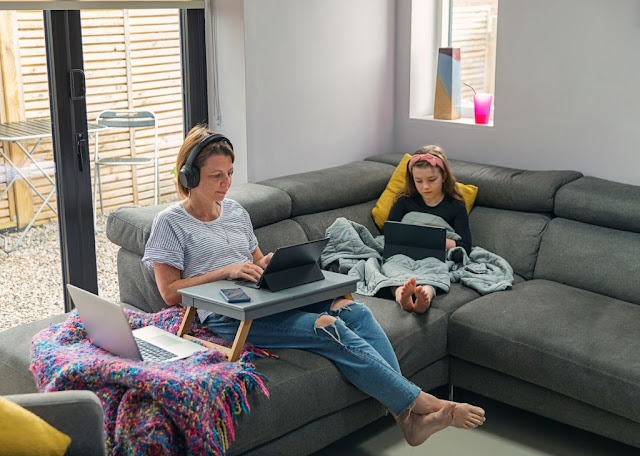“Managing a remote team is difficult”
Managing a remote team is not difficult; it’s different.
Company culture is more than snacks and a foosball table. To foster a connection between a company and its employees there needs to be mindfulness, intention, communication, and rethinking how employees work together.
We are so attached to our ways of leadership that we try to fit the way we know how to lead into a new model. It’s like trying to put a square peg in a round hole. It doesn’t work and you will only become frustrated with your results.
Instead…ask what concepts and attributes of your management style you want to bring into your remote culture. Is it autonomy? Is it team camaraderie? Is it candid communication?
Building an in-office team with a strong culture happens organically with water cooler chats, shared lunches, and team activities. However, building a remote team with a strong culture can also happen organically, but it will require leaders to be more deliberate in their effort.
It will require you to take the in-office concepts you know well and find a new way to achieve the same results. Remember, you should always be focused on the goal, but flexible in your methods.
I have been working with remote teams for 5 years now and here are some steps that I have seen success with:
- ) Set the foundation right away and remind the team often: great company culture is often attached to the work environment. It starts at the top. It’s important that company leaders show up with humility, curiosity, interest, and transparency. Leaders set the expectation that it’s OK to make mistakes, be proactive, and promote participation. My team has a set of rules. We call these our “rules of engagement”, and these are the rules our team agrees to play by. This not only addresses how we perform, but also how we show up for the company, ourselves, and of course our teammates. Every new addition to our team is presented with this during onboarding and as a whole team, we revisit it quarterly.
- Communicate job expectations and goals clearly: Have you ever started a new job in an office, and they put you in a room to watch videos or read a “company core values” pamphlet? It’s the worst feeling ever, even in the office to feel abandoned. You don’t know what you are supposed to do next and haven’t had a full rundown of your new gig. It’s much easier to create a high-performing remote culture if everyone on the team understands the company’s vision. Settle on a clear and concise way of describing that mission, communicate it to your teams, and continue to reinforce it. This reminds people of the importance of what they’re accomplishing together, and, in my opinion, this needs to start during their training week.
- Establish Regular Connections: Set recurring touchpoints and do NOT cancel. As humans, we are used to the routine. Creating a regular routine in your remote workplace helps your team to feel at ease and know what to expect from their day. I set weekly kick-offs, sales training, team meetings, motivation/mindset syncs, and 1x1’s. Beyond that, I set up communication expectations on the best way to get in contact with me. Establishing these regular connections builds trust with your team and shows you that you are available for them.
- Have Fun: I think when it comes to setting virtual meetings, we tend to feel like it has to be all business. I am here to tell you that it doesn’t and your “how was your weekend?” attempt to be chill is not enough. Play games, get to know your team, or really do anything else than only reminding them about the work they have to do. Setting happy hours is great and should be included, but it needs to happen in the routine as well. Connect as humans and I promise your team will be more bought into your remote culture.
- Collect feedback regularly: Yes, I mean about yourself. Your team is not the only ones who need to hear how they are doing… you do too! I do a few things to engage in feedback. I ask for it face to face, I ask after team meetings if this was beneficial to them or not, and I regularly send anonymous surveys for my team to give me overall feedback. Why? Well, we all have room to improve, I want to be able to give my team what they need vs what I think they need, and it’s important for your team to feel heard.
Whether you are experienced at leading remote teams or forced into due to the pandemic, I want to impress upon you that leading a remote team is not difficult; it’s different.
It will require you to go into your day with intention, it will ask you to challenge your management skills, and take a new approach to achieve a culture that people want to be part of.
Good leaders are not built by office walls and a desk. In fact, a good leader is one who leads by example. If you want your team to be passionate, candid communicators, transparent about their day-to-day, dedicated, and motivated then you must go first.

